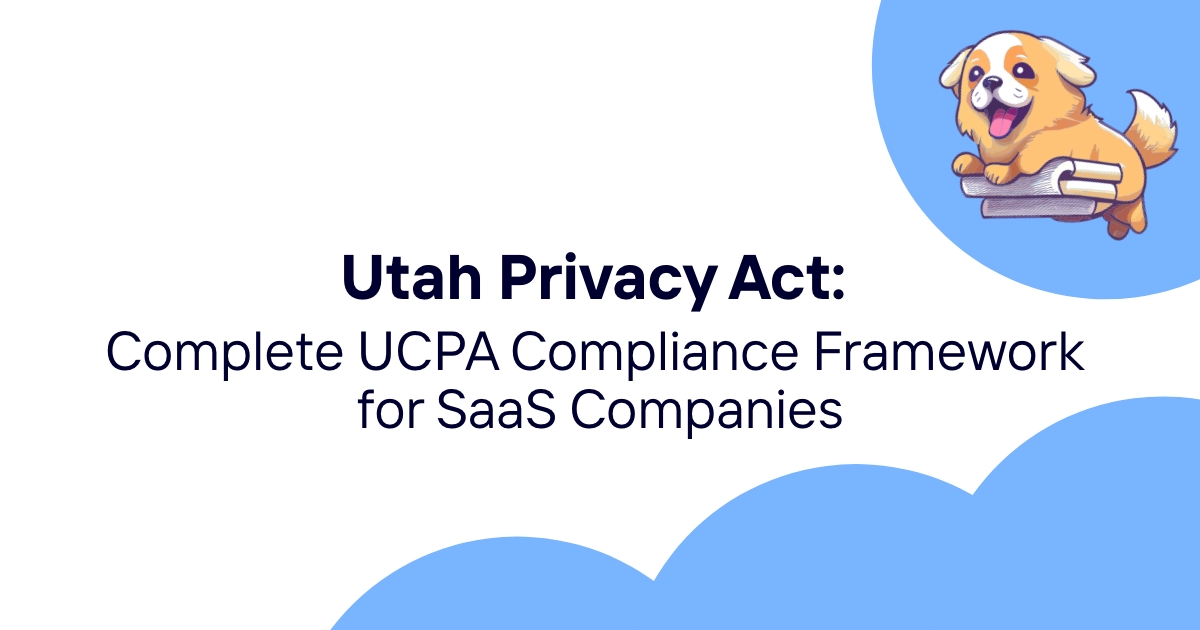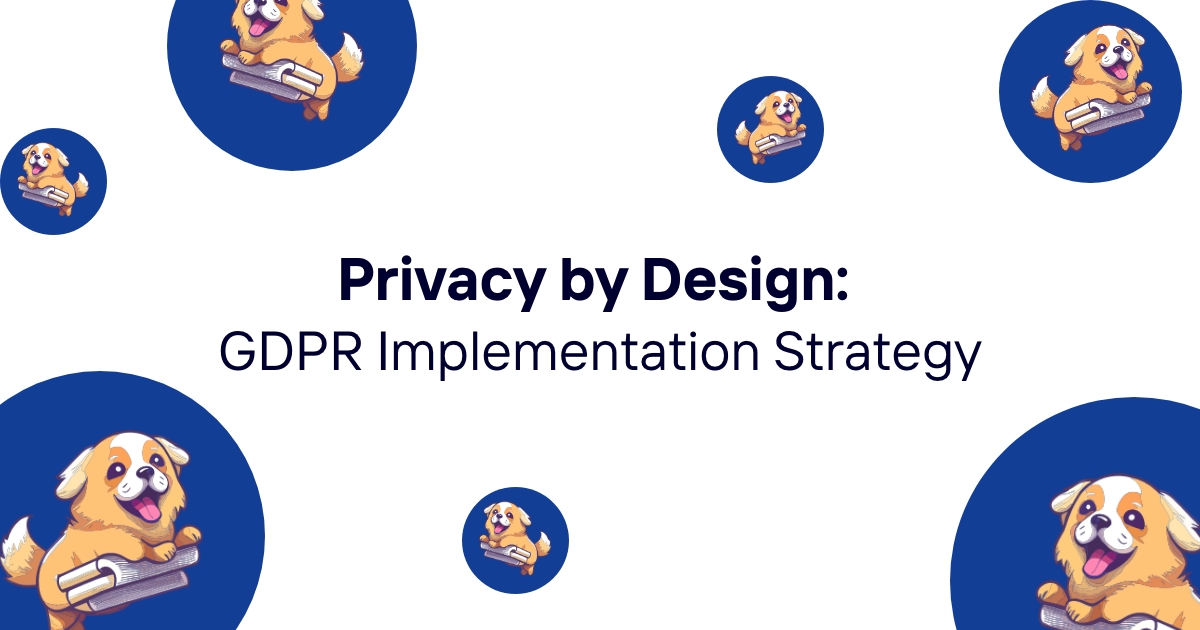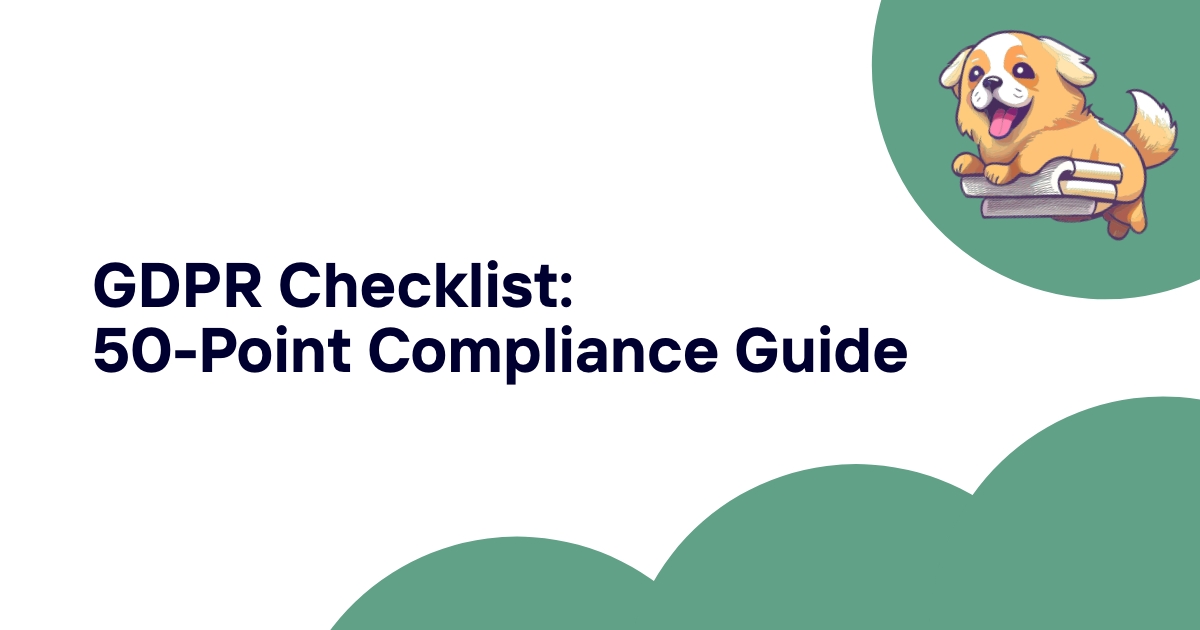Utah's Consumer Privacy Act (UCPA) represents a unique approach to state privacy legislation that balances meaningful consumer protection with business-friendly implementation requirements. UCPA creates a framework that supports Utah's growing technology sector while providing consumers with essential privacy rights that align with national privacy trends.
The Utah Consumer Privacy Act applies to SaaS companies that conduct business in Utah and either control or process personal data of 100,000 or more Utah consumers annually, or derive revenue from selling personal data and control or process personal data of 25,000 or more Utah consumers.
What distinguishes UCPA from other state privacy laws is its emphasis on business flexibility and practical implementation. Utah designed its privacy law to provide meaningful consumer protection without creating unnecessary regulatory burden that could hinder innovation and business growth in the state's technology sector.
UCPA's business-friendly approach makes it an attractive model for SaaS companies seeking to understand how comprehensive privacy protection can be implemented efficiently while supporting business operations and innovation. Utah's approach demonstrates that strong privacy protection and business growth can coexist effectively.
SaaS companies that master UCPA compliance gain valuable experience with efficient privacy implementation that can inform broader multi-state compliance strategies. ComplyDog helps SaaS platforms navigate Utah privacy requirements alongside other state and international frameworks through comprehensive compliance management that emphasizes practical implementation.
Utah Privacy Act Overview for Software Companies
UCPA creates consumer privacy rights and business obligations that reflect Utah's approach to balancing privacy protection with support for business innovation and economic growth.
UCPA Scope and Applicability:
UCPA applies to controllers that conduct business in Utah and meet specific volume thresholds for personal data processing. The law focuses on substantial commercial data processing operations rather than minimal Utah connections.
SaaS platforms need to evaluate their Utah customer base and data processing activities carefully, considering both direct customer relationships and indirect data collection through platform analytics, advertising, and integrated services.
Personal Data Definition:
UCPA defines personal data as information that is linked or reasonably linkable to an identified or identifiable individual, including user accounts, device identifiers, behavioral analytics, and location data collected by SaaS platforms.
The definition excludes publicly available information and de-identified data that meets specific technical standards, but SaaS companies must ensure de-identification processes prevent re-identification through data combination or advanced analytics.
Sensitive Data Categories:
UCPA provides enhanced protection for sensitive personal data including data revealing racial or ethnic origin, religious beliefs, health information, sexual orientation, citizenship status, genetic data, biometric data, and precise geolocation information.
SaaS platforms processing sensitive data must implement consent requirements and enhanced protection measures while supporting legitimate business functionality and user experience.
Business-Friendly Implementation:
UCPA emphasizes practical implementation that supports business operations while providing meaningful consumer protection. This approach creates opportunities for SaaS companies to implement efficient compliance that exceeds minimum requirements.
Utah's business-friendly approach rewards companies that demonstrate genuine privacy protection through thoughtful implementation rather than focusing solely on procedural compliance requirements.
No Private Right of Action:
UCPA enforcement is handled exclusively by Utah's Division of Consumer Protection, creating a regulatory enforcement environment that emphasizes compliance support and business cooperation rather than litigation risk.
This enforcement approach allows SaaS companies to focus on building effective privacy protection rather than defensive compliance strategies designed primarily to limit litigation exposure.
For insights on building business-friendly privacy compliance, check out our Connecticut privacy compliance guide which addresses similar balanced implementation approaches.
UCPA Consumer Rights Implementation
UCPA consumer rights create specific implementation requirements for SaaS companies that emphasize practical access and meaningful choice while supporting efficient business operations.
Right to Know Implementation:
UCPA gives consumers rights to know whether personal data is being processed and access categories of personal data, processing purposes, categories of third parties receiving data, and data sources.
Implement access systems that provide comprehensive information about data processing activities while protecting business confidential information and other consumers' data through efficient automated response mechanisms.
Data Access and Transparency:
Design access systems that provide meaningful information about data processing without overwhelming consumers with technical details or exposing proprietary business information that doesn't relate to individual privacy.
Focus on providing access information that helps consumers understand how their data is used and what choices they have rather than comprehensive technical documentation of all platform operations.
Data Deletion Rights:
UCPA deletion rights allow consumers to request deletion of personal data with reasonable exceptions for legitimate business purposes, legal obligations, and platform security requirements.
Build deletion systems that can remove consumer personal data efficiently while preserving information necessary for fraud prevention, security monitoring, legal compliance, and service delivery to other users.
Data Portability Requirements:
Data portability rights enable consumers to obtain personal data in a portable format when technically feasible, supporting consumer choice and market competition without compromising business operations.
Create portability features that provide useful data exports in standard formats while protecting intellectual property, trade secrets, and competitive information that belongs to the SaaS platform.
Opt-Out Rights Management:
UCPA provides opt-out rights for targeted advertising and sale of personal data that require practical implementation mechanisms that respect consumer choices while supporting legitimate business models.
Design opt-out systems that provide clear control over data processing while explaining how opt-out decisions affect platform functionality, service quality, and available features.
UCPA vs Other State Privacy Laws
Understanding how UCPA differs from other state privacy laws helps SaaS companies build efficient multi-state compliance that leverages Utah's business-friendly approach while satisfying other jurisdictions' requirements.
Business-Friendly Implementation Focus:
UCPA emphasizes practical implementation and business flexibility more than other state privacy laws, creating opportunities for efficient compliance that can inform broader privacy strategies.
Leverage UCPA's practical approach to build privacy systems that satisfy Utah requirements while providing frameworks that can be enhanced to meet more stringent requirements in other states.
Streamlined Consumer Rights:
UCPA consumer rights are designed for practical implementation without unnecessary procedural complexity, offering models for efficient rights management that can scale across multiple jurisdictions.
Use UCPA rights implementation as a foundation for multi-state consumer rights systems that can be enhanced with additional features required by other state privacy laws.
Enforcement Approach Differences:
UCPA's regulatory enforcement approach differs from states that allow private rights of action, affecting compliance strategy and risk management considerations for multi-state operations.
Consider UCPA's cooperative enforcement model when developing compliance strategies that balance regulatory engagement with legal risk management across different state jurisdictions.
Sensitive Data Protection Coordination:
UCPA sensitive data requirements can be coordinated with other state privacy laws to create unified protection that satisfies multiple jurisdictions through single implementation approaches.
Build sensitive data protection that meets UCPA consent requirements while satisfying enhanced protection standards in other states through comprehensive but efficient implementation.
UCPA Data Processing Requirements
UCPA establishes data processing obligations that support business operations while ensuring appropriate privacy protection through reasonable and practical implementation requirements.
Data Minimization Principles:
UCPA requires limiting personal data collection to what is reasonably necessary for disclosed purposes, affecting SaaS platform design and feature implementation decisions.
Implement data minimization that supports legitimate business purposes while avoiding unnecessary data collection that creates privacy risks without corresponding business value.
Purpose Limitation Requirements:
Personal data must be processed for disclosed purposes that are reasonably compatible with original collection purposes, requiring clear purpose definition without excessive restrictions on business flexibility.
Document processing purposes that provide appropriate transparency while supporting business operations and platform evolution that serves legitimate consumer and business interests.
Data Quality and Accuracy:
UCPA requires reasonable measures to ensure personal data accuracy for processing purposes, affecting data management procedures without creating excessive quality assurance burden.
Implement data quality processes that maintain appropriate accuracy while providing practical mechanisms for consumers to identify and correct information errors affecting their services.
Transparency Requirements:
SaaS platforms must provide clear privacy notices that explain data processing practices in understandable language without overwhelming consumers with unnecessary technical detail.
Design privacy notices that satisfy UCPA transparency requirements while supporting consumer understanding and decision-making about privacy choices and platform use.
Security Implementation:
UCPA requires implementing reasonable security measures appropriate to data volume and sensitivity, supporting practical security implementation that protects consumer data effectively.
Build security programs that provide appropriate protection while supporting business operations and customer experience through efficient and effective security measures.
UCPA Sensitive Data Processing
Utah's approach to sensitive data processing emphasizes consent and enhanced protection while supporting legitimate business uses through practical implementation requirements.
Sensitive Data Categories:
UCPA defines sensitive personal data to include racial or ethnic origin, religious beliefs, health information, sexual orientation, citizenship status, genetic data, biometric data, and precise geolocation information.
Identify sensitive data processing in your SaaS platform and implement appropriate consent and protection measures while supporting legitimate business functionality and user experience.
Consent Requirements:
UCPA requires obtaining consumer consent before processing sensitive personal data, creating implementation obligations that must balance meaningful consent with practical platform operation.
Design consent mechanisms that clearly identify sensitive data processing and obtain appropriate permission while supporting platform functionality and avoiding consent fatigue.
Enhanced Protection Measures:
Sensitive personal data requires enhanced security and handling measures that exceed standard personal data protection while supporting legitimate business uses and platform features.
Implement enhanced protection for sensitive data through additional security controls, access restrictions, and monitoring that provide appropriate protection without unnecessary operational burden.
Business Use Considerations:
UCPA allows legitimate business uses of sensitive data with appropriate consent and protection, supporting business innovation while ensuring consumer privacy protection.
Balance sensitive data protection requirements with legitimate business needs through thoughtful implementation that provides genuine protection while supporting platform innovation and development.
Multi-State Privacy Compliance Strategy
Building effective multi-state privacy compliance using UCPA as a foundation requires understanding how Utah's business-friendly approach can inform broader privacy strategies.
UCPA as Compliance Foundation:
Use UCPA's practical implementation requirements as a foundation for multi-state privacy compliance that can be enhanced to meet more stringent requirements in other jurisdictions.
Build privacy systems that satisfy UCPA requirements while providing architecture that can be expanded to address additional requirements in California, Virginia, Colorado, and other states.
Business-Friendly Implementation Models:
Leverage UCPA's business-friendly approach to demonstrate how comprehensive privacy protection can be implemented efficiently while supporting business growth and innovation.
Use Utah compliance as a model for engaging with other state regulators and privacy advocates about practical privacy implementation that serves both consumer and business interests.
Compliance Efficiency Strategies:
UCPA's streamlined requirements provide opportunities to build efficient compliance systems that satisfy multiple state privacy laws through unified but flexible implementations.
Design compliance architectures that provide Utah compliance while supporting expansion to other states through modular approaches that can be enhanced as needed.
Regulatory Engagement Approaches:
UCPA's cooperative enforcement model provides insights for engaging with regulators across multiple states through collaborative approaches that emphasize compliance support and business partnership.
Use experience with Utah's regulatory approach to inform engagement strategies with other state privacy regulators that emphasize cooperation and practical compliance solutions.
UCPA Documentation and Compliance Management
UCPA compliance requires documentation and management systems that emphasize practical implementation while supporting regulatory accountability and business operations.
Privacy Policy Development:
Develop privacy policies that address UCPA requirements including consumer rights, data processing purposes, sensitive data handling, and contact information while supporting multi-state compliance needs.
Create privacy policies that satisfy Utah transparency requirements while providing comprehensive coverage of business practices and multi-jurisdictional privacy obligations.
Data Processing Documentation:
Maintain documentation of data processing activities, purposes, and protection measures that supports UCPA compliance while providing practical guidance for business operations.
Create processing documentation that supports regulatory compliance while providing operational value through clear guidance for staff and business decision-making.
Consumer Rights Procedures:
Develop efficient procedures for handling consumer rights requests that satisfy UCPA requirements while supporting business operations and customer service quality.
Build consumer rights procedures that provide practical implementation of Utah requirements while supporting expansion to handle additional rights required in other states.
Business Process Integration:
Integrate UCPA compliance into business processes in ways that support both privacy protection and business efficiency through practical implementation that adds operational value.
Design compliance integration that demonstrates how privacy protection can enhance business operations rather than creating unnecessary regulatory burden or operational friction.
Training and Awareness:
Implement training programs that emphasize practical UCPA compliance while building privacy awareness that supports broader multi-state compliance strategies.
Develop training that addresses Utah privacy requirements while building organizational privacy capabilities that support expansion across multiple jurisdictions and regulatory frameworks.
Ready to build business-friendly privacy compliance? Use ComplyDog and leverage Utah's practical approach to privacy protection as a foundation for comprehensive multi-state compliance that supports both consumer privacy and business success.


















